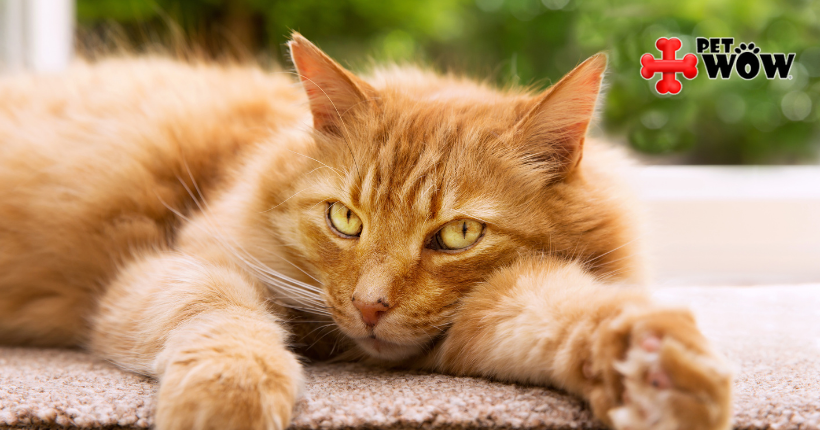As concerned cat parents, we worry about our pets all year long, but during summer, there are specific issues that impact cats. Even if your cat is a strictly indoor pet, please take a moment to become familiar with these summer health concerns so you know what to look for in your pet.
Fleas and Ticks
The most common issues during warmer months are fleas and ticks. Even if your cat doesn’t go outside, this is still something that needs to be addressed. Cats love sitting by open windows, and screens don’t protect them from fleas and ticks. When ingested, fleas can transmit tapeworms. White sections of a tapeworm can be seen around your cat’s backside or in your cat’s bed.
It’s best to treat for fleas and ticks year-round with a topical medication available at your vet. These are very easy to apply between the shoulder blades and typically last for one month per application. It’s worth the two minutes of your time compared to having to treat your home after an infestation!
Roundworms and Hookworms
If your cat goes outdoors, be vigilant about roundworms, which is a parasite transmitted by eating or biting rodents. Rarely, it can also come from the feces of an infected cat or even a dog. Cats can also catch roundworms or hookworms from playing in the soil where rodents or other infected animals played. A piece of this soil is ingested when your cat is grooming, even if they haven’t eaten or bitten a rodent.
Roundworms can cause diarrhea and vomiting and may give your cat a pot-bellied appearance. The main symptom of hookworms is dark feces. Your vet will examine your cat’s feces for a diagnosis. Because there are several types of medications for cats, it’s important to have your vet recommend the best one for your cat instead of trying to treat it on your own.
Heartworms
Transmitted by a mosquito bite, heartworms are foot-long worms that live in the heart, lungs, and blood vessels of infected animals. Coughing, difficulty breathing, vomiting, lethargy, and weight loss are all symptoms of potentially fatal heartworm infection. If your cat has these symptoms, he or she will need to be seen by your vet immediately. The best way to avoid this serious health risk? Use a year-round topical or chewy-treat medication available from your vet.
At PetWow, we believe in promoting a healthy lifestyle for our furry friends, that’s why we work hard to create a positive experience for them during their visits. More than 30,000 pet parents trust the health and grooming of their best friends to us, and we take that care seriously. To schedule your appointment, call us today at 513-738-9691 to schedule your appointment at our Highland Heights or Florence Kentucky locations, or for At Home Veterinary Care. For more pet care tips, follow us on Facebook, Twitter, Instagram, Pinterest or LinkedIn!






